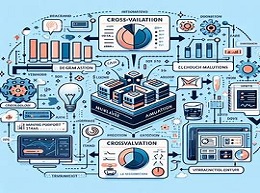Ethical Considerations in Artificial Intelligence

Artificial intelligence (AI) has the potential to revolutionize various aspects of society, from healthcare to finance to transportation. However, as AI technologies become more pervasive, it is essential to consider the ethical implications of their development and deployment. In this article, we'll delve into the ethical considerations surrounding artificial intelligence and discuss how stakeholders can navigate these challenges responsibly.
Transparency and Accountability
Explainable AI
Explainable AI (XAI) is crucial for ensuring transparency and accountability in AI systems. XAI techniques enable users to understand how AI algorithms arrive at their decisions, providing insights into the underlying reasoning and mitigating potential biases or errors.
Example: In a loan approval system, explainable AI techniques can provide explanations for why a particular applicant's loan application was denied, helping ensure fairness and accountability.
Fairness and Bias
Addressing Bias in AI
AI algorithms can inadvertently perpetuate biases present in training data, leading to unfair or discriminatory outcomes. Addressing bias in AI requires careful data collection, preprocessing, and algorithm design to mitigate biases and ensure equitable outcomes for all user groups.
Example: Facial recognition systems trained on biased datasets may exhibit higher error rates for certain demographic groups, highlighting the importance of addressing bias in AI applications.
Privacy and Data Protection
Data Privacy Regulations
AI systems often rely on large volumes of personal data to train and operate effectively. Ensuring privacy and data protection is essential to maintain trust and comply with regulations such as the General Data Protection Regulation (GDPR) and the California Consumer Privacy Act (CCPA).
Example: Healthcare AI applications must adhere to strict data privacy regulations to protect patients' sensitive medical information and maintain patient confidentiality.
Safety and Reliability
Robustness and Safety
AI systems must be designed to operate safely and reliably, especially in critical domains such as autonomous vehicles and medical diagnosis. Robustness testing and safety measures are essential to mitigate the risk of system failures or unintended consequences.
Example: Autonomous vehicles undergo rigorous testing and validation to ensure their safety and reliability in real-world driving conditions, minimizing the risk of accidents or malfunctions.
Accountability and Governance
Ethical AI Governance
Establishing clear accountability and governance structures is crucial for ensuring responsible AI development and deployment. Ethical AI frameworks and guidelines help organizations navigate ethical challenges and make informed decisions about AI technologies.
Example: The European Commission's Ethics Guidelines for Trustworthy AI outline principles for ethical AI development, including transparency, accountability, and human oversight.
Socioeconomic Impact
Addressing Socioeconomic Disparities
AI technologies have the potential to exacerbate socioeconomic disparities if not deployed responsibly. Addressing the socioeconomic impact of AI requires measures to mitigate job displacement, ensure equitable access to AI technologies, and promote inclusive economic growth.
Example: Implementing reskilling and upskilling programs can help workers adapt to the changing labor market dynamics driven by AI technologies, reducing the risk of job displacement.
As artificial intelligence continues to evolve and permeate various aspects of society, it is essential to consider the ethical implications of its development and deployment. Transparency, fairness, privacy, safety, accountability, and socioeconomic impact are key ethical considerations that must be addressed to ensure responsible AI innovation. By adopting ethical AI frameworks, guidelines, and best practices, stakeholders can navigate the ethical challenges of AI and harness its transformative potential for the benefit of society as a whole.













